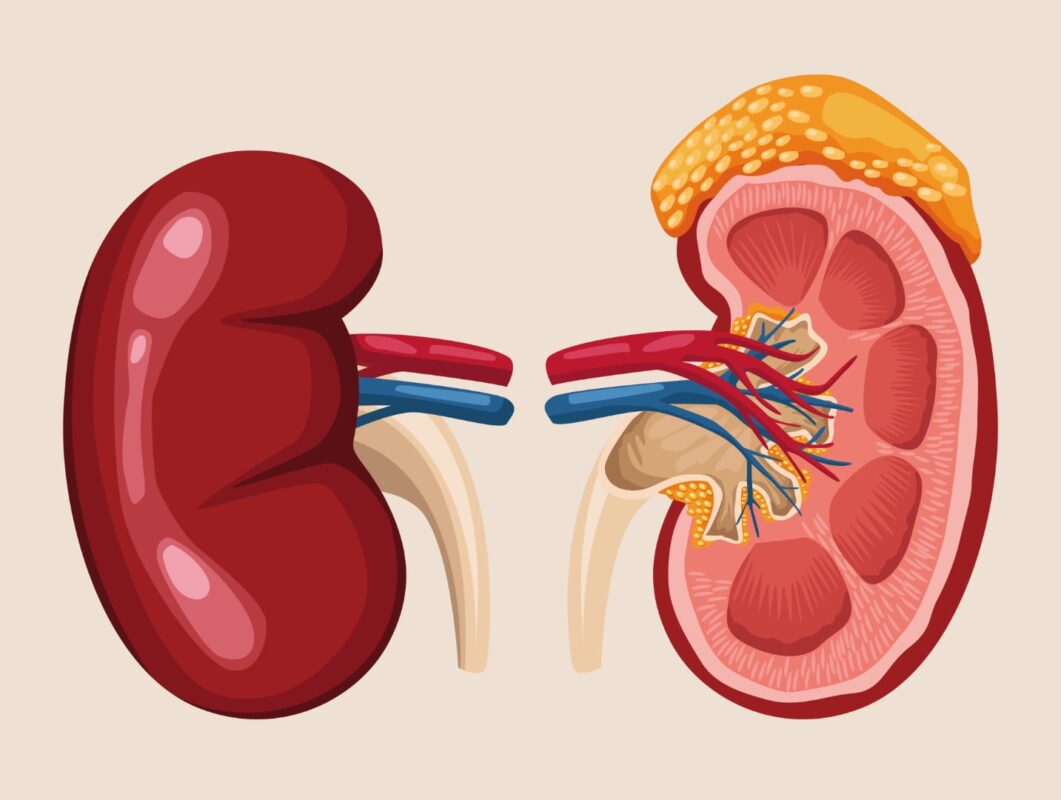Glomerular Filtration Rate (GFR) is one of the most important measures of how well your kidneys are functioning. The kidneys act as the body’s natural filters, clearing waste products and excess fluid from the blood. GFR estimates how much blood passes through the glomeruli—tiny filters in the kidneys—each minute.
A higher GFR indicates healthier kidney function, while a lower GFR suggests impaired kidney function and possible chronic kidney disease (CKD).
Why Is GFR Important?
- Early detection of kidney disease: Kidney damage often develops silently, with no obvious symptoms until advanced stages. Regular GFR measurement helps identify problems before they become serious.
- Guiding treatment: The stage of kidney disease is determined by GFR values. This influences medical decisions, such as adjusting medications or planning dialysis.
- Monitoring progression: For people already diagnosed with kidney disease, GFR helps doctors track how quickly the condition is changing.
How Is GFR Measured?
Directly measuring GFR is complex and usually reserved for research or special medical situations. In everyday practice, GFR is estimated (eGFR) using blood tests combined with age, sex, and sometimes race. Two main markers are used:
1. Serum Creatinine
- What it is: Creatinine is a waste product from normal muscle metabolism.
- Advantages: Widely available, inexpensive, well-studied.
- Limitations: Creatinine levels depend on muscle mass. A muscular person may appear to have reduced kidney function even when their kidneys are healthy. Conversely, someone with very little muscle (e.g., frail elderly patients) may appear to have “normal” kidneys when in fact they are impaired.
2. Cystatin C
- What it is: A protein produced by all nucleated cells in the body, filtered almost entirely by the kidneys.
- Advantages: Less affected by muscle mass, age, sex, or diet. Often more accurate in people with unusual body composition.
- Limitations: More expensive and less commonly ordered than creatinine. Availability may vary depending on the healthcare setting.
Special Considerations: Bodybuilders and High Muscle Mass Individuals
For athletes, bodybuilders, or people with naturally high muscle mass, creatinine-based eGFR may underestimate kidney function. Their higher baseline creatinine is a reflection of muscle turnover, not kidney disease.
- Creatinine eGFR: May show “false low” results in muscular individuals.
- Cystatin C eGFR: More reliable in this group because it is not influenced by muscle size.
- Best practice: In such cases, doctors may use a combined equation (using both creatinine and cystatin C) for greater accuracy.
Can Kidney Function Be Treated or Improved?

While reduced GFR usually indicates permanent kidney damage, treatment can slow progression and protect overall health:
- Controlling blood pressure and diabetes (the leading causes of CKD).
- Avoiding harmful medications (e.g., long-term NSAIDs like ibuprofen).
- Maintaining healthy lifestyle habits: balanced diet, regular exercise, smoking cessation.
- Specialist treatments: If GFR continues to decline, doctors may discuss dialysis or kidney transplantation.
Advice for Maintaining Healthy Kidneys
Even without kidney disease, taking preventive steps helps keep your kidneys healthy throughout life:
- Stay well hydrated – Water supports kidney filtration and helps prevent kidney stones.
- Eat a balanced diet – Limit excessive salt, processed foods, and added sugars. Focus on fruits, vegetables, whole grains, and lean proteins.
- Control blood pressure and blood sugar – Hypertension and diabetes are the leading causes of kidney damage. Regular monitoring is key.
- Be cautious with medications and supplements – Overuse of pain relievers (NSAIDs) and unregulated supplements can harm the kidneys.
- Limit alcohol and quit smoking – Both increase the risk of kidney and cardiovascular disease.
- Exercise regularly – Helps maintain a healthy weight and reduces risk factors such as diabetes and high blood pressure.
- Get regular check-ups – Especially if you have a family history of kidney disease, diabetes, or hypertension.
Frequently Asked Questions (FAQ)
1. How often should I check my kidney function?
For most healthy adults, kidney function is checked during routine health screenings every 1–3 years. If you have risk factors such as diabetes, high blood pressure, or a family history of kidney disease, your doctor may recommend yearly testing.
2. Can I improve my GFR?
A reduced GFR usually reflects permanent kidney damage. However, healthy lifestyle changes and good medical management (controlling blood pressure, diabetes, avoiding kidney-harming medicines) can slow or stop further decline.
3. Which test is best for me—creatinine or cystatin C?
Most people start with creatinine-based eGFR. If you are very muscular, very slim, elderly, or if results are unclear, your doctor may order cystatin C or a combined test for more accuracy.
4. Does drinking more water improve GFR?
Staying hydrated supports kidney health, but drinking excessive amounts of water will not improve GFR if kidney damage already exists. Balance is key.
5. What are the early warning signs of kidney disease?
Often there are no symptoms in the early stages. Later signs may include swelling of ankles or around the eyes, fatigue, changes in urination, or high blood pressure. This is why routine testing is so important.
6. If my GFR is low, does it mean I will need dialysis?
Not always. Dialysis is usually only considered in advanced kidney failure (GFR <15 mL/min/1.73m²) and when symptoms are present. Many people with moderately reduced GFR can live well for years with careful medical care.
Key Takeaways
- GFR is a vital measure of kidney health, guiding diagnosis and treatment.
- Creatinine is widely used but influenced by muscle mass, making it less reliable for bodybuilders or people with very low muscle.
- Cystatin C offers a more accurate alternative in these cases, though it is less available.
- For most people, a combination of both markers gives the clearest picture.
- Healthy lifestyle habits and regular monitoring are the best defences against kidney disease.
References (Patient-Friendly Sources)
- National Kidney Foundation. Estimated Glomerular Filtration Rate (eGFR). https://www.kidney.org/atoz/content/gfr
- KDIGO (Kidney Disease: Improving Global Outcomes). CKD Evaluation and Management Guidelines. Kidney Int Suppl. 2013.
- Inker LA, et al. Estimating glomerular filtration rate from serum creatinine and cystatin C. N Engl J Med. 2012;367:20–29.
- Levey AS, Stevens LA, et al. A new equation to estimate glomerular filtration rate. Ann Intern Med. 2009;150(9):604–612.
- American Kidney Fund. Understanding Kidney Function Tests. https://www.kidneyfund.org/kidney-disease/kidney-tests
